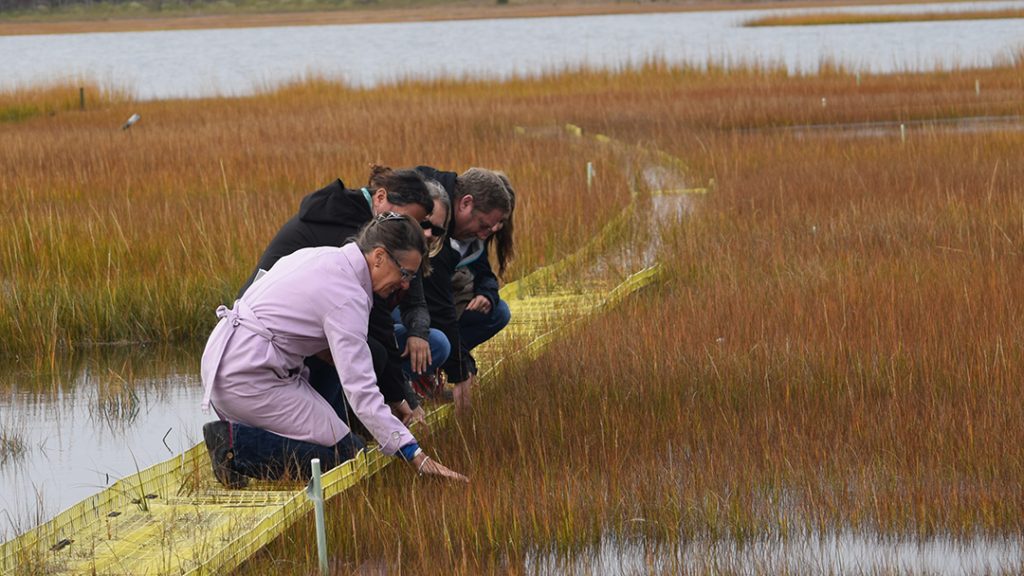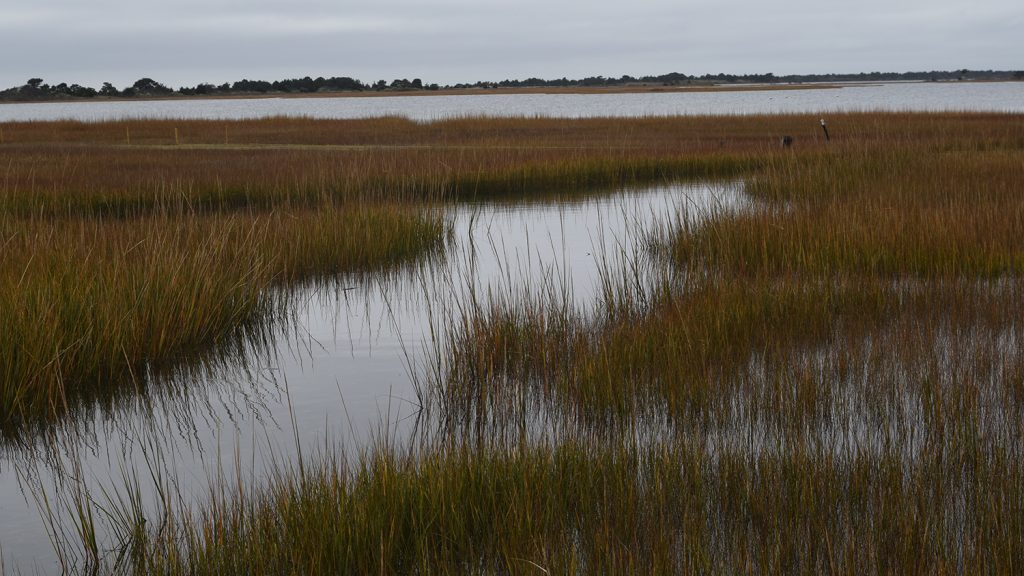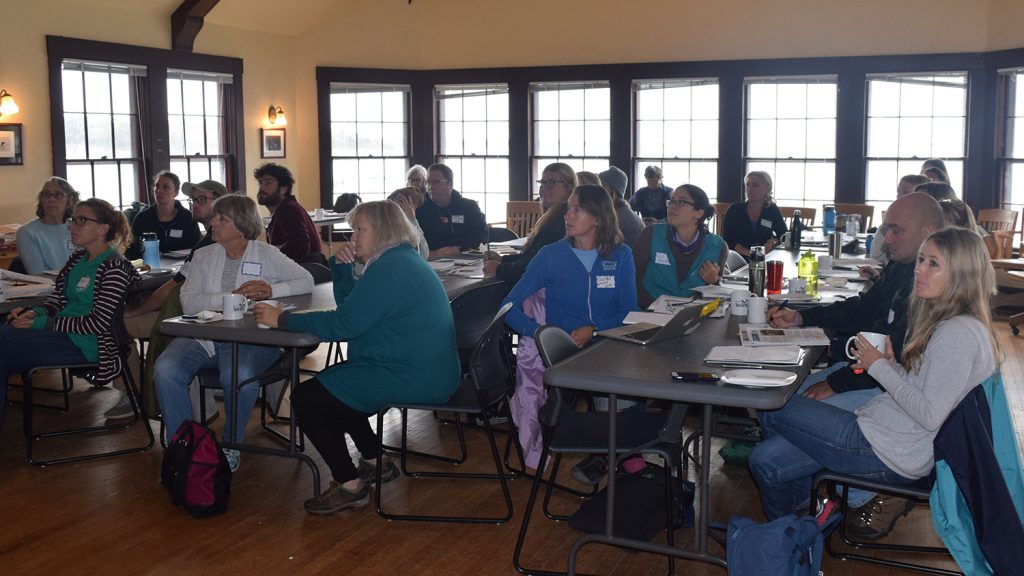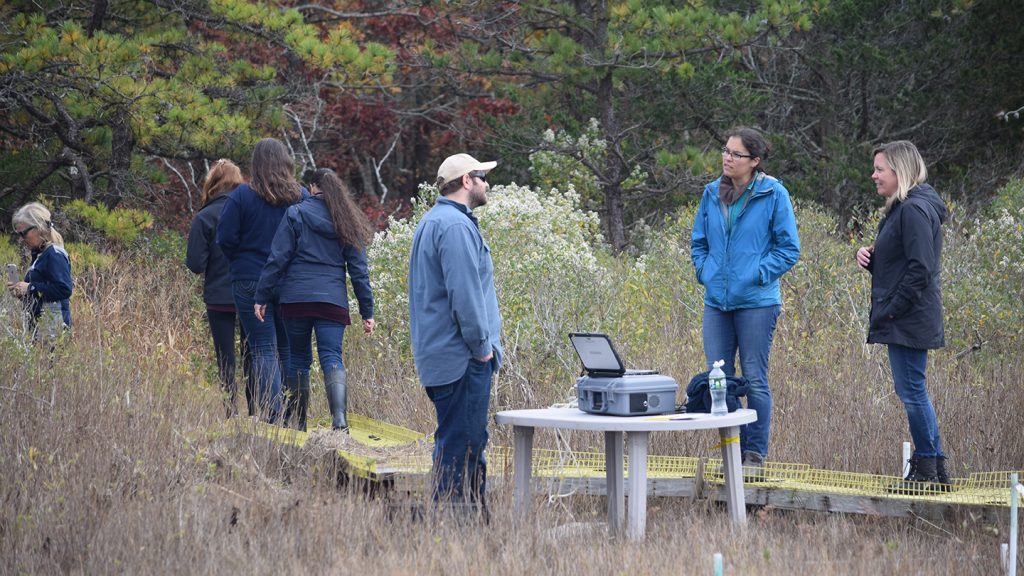Teacher Workshop: Carbon Cycling in Coastal Wetlands

Educators from as close as Falmouth and as far away as Connecticut came to the Waquoit Bay National Research Reserve (WBNERR) on October 29th to participate in Woods Hole Sea Grant’s popular teacher professional development workshop series, Topics in Oceanography. This day-long event, sponsored by Woods Hole Sea Grant (WHSG), Woods Hole Oceanographic Institution (WHOI), and in collaboration with WBNERR, focused on carbon cycling in coastal wetlands.
In a classroom overlooking the glimmering waters of Waquoit Bay in Falmouth, educators spent the morning learning from two leading scientists in the field. Dr. Anne Giblin of the Woods Hole-based Marine Biological Laboratory, focused on “Rising Seas and the Fate of Coastal Salt Marshes,” and USGS’s Dr. Meagan Eagle Gonneea focused on “Blue Carbon in Our Backyard: Coastal Wetlands, Climate Management, and Markets.” With this access to researchers, educators were able to dive deep into the subject matter, ask lots of questions and have answered so they can take that information back to their classrooms.
In the afternoon, educators visited the salt marsh at South Cape Beach with Dr. Gonneea, seeing experiments in action and some of the technologies being used in current research. They also explored WBNERR’s “Bringing Wetlands to Market” curriculum with the reserve’s education coordinator, Joan Muller. This gave educators a solid platform to work from when delivering wetland science and carbon cycling material in their classroom.
The WHOI/WHSG teacher workshops are offered twice annually and focus on current marine topics and the applicable science standards. In addition to a professional development certificate, teachers take home background material as well as data and sample lesson plans to incorporate in their classrooms once they return to the classroom. In the words of one attendee, “The WHOI/Sea Grant workshops are excellent and a great resource for educators!”



